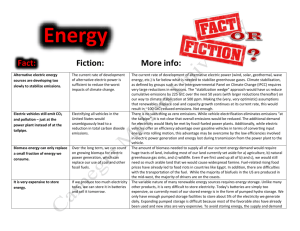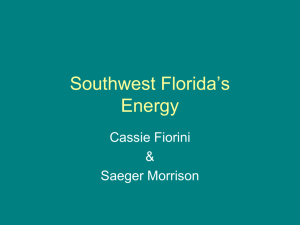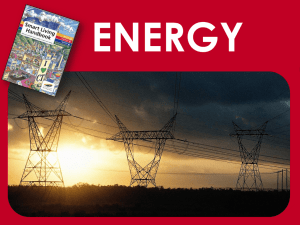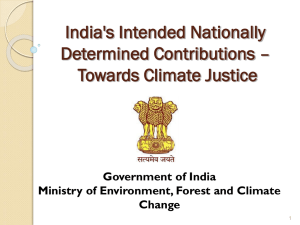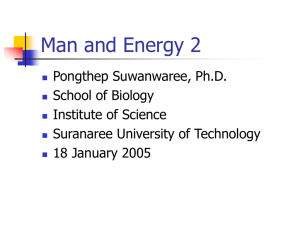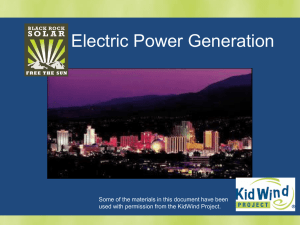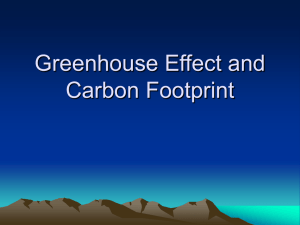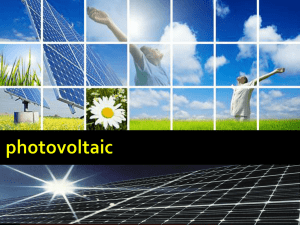Germany
advertisement
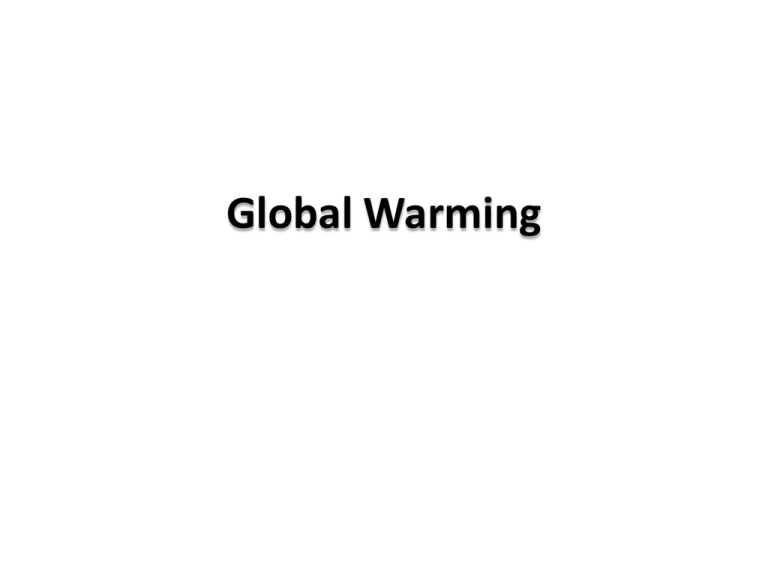
Global Warming Amount of CO2 – emissions in Germany • The climate change is currently one of the most important concerns in the world. • If we don´t do anything against it, the earth is going to grow warmed • Besides many Mediterranean regions would have 30% less amount of water • For now the priority lies in stopping the climate change, because it most certainly cannot be reversed Methane: • Australian, British and American scientists report that since 2007 the concentration of methane in the atmosphere has been increasing again for almost ten years. • As a greenhouse gas, methane is about 25 times as effective as CO2. Its share of the global warming problem is currently 16 percent. Climate change & Environmental protection • The issues of climate change and environmental protection are among the most important of our time. We will explain what contribution you can make to protect the environment by solar energy and how much emission can be saved annually. Environmental protection by solar energy • Solar energy is a renewable and clean energy. • More and more solar and thermal systems and photovoltaic systems are being installed, for example the increase from 2007 to 2008 was 100 percent in Germany Solar systems reduce carbon emissions • A conventional heating causes 603 grams of climate-damaging carbon dioxide per kilowatt hour. • This gas is responsible for among other things • As for the use of solar energy no substances are burned, this technology saves a large amount of emissions and protects the environment. • The amount depends on the type of solar collector and the solar system. Polluter of climate change summary Traditional energy generation in Germany Co2 emissions of fossil fuels Share of energy generation Energy turnaround since 2011 (fukushima) “Garzweiler 2” (lignite mine) Co2 emissions per head in Germany Energy generation in Germany The electricity mix in Germany consists of very different energy sources: coal, nuclear and renewable energy are the most important. In industrialized countries, is a life without electricity hardly conceivable. Electricity is usually generated in power plants, power generation in Germany is now privatized. Electricity is generated by energy forms such as heat or kinetic energy which are converted into electrical energy. Coal has the largest share of electricity generation. http://www.strom-magazin.de/stromerzeugung/ • Germany is one of the leading industrial nations! co2 emissions of fossil fuels http://www.gasag.de/SiteCollectionImages/Unternehmen/F%25C3%25BCr%2520Berlin/CO2-Emisssionen-fossiler-energietraeger.jpg • Share of energy generation in 2012 • http://www.forschungs-blog.de/wp-content/uploads/2012/07/120730-Brutto-Stromerzeugung-DE-2011-FhGAST_V2.jpg Nuclear and - renewable energy • http://www.aktion-ee.de/home/home_bilder/strom_aus_ee.jpg Share of gross electricity consumption • http://www.google.de/imgres?um=1&sa=N&biw=1366&bih=667&hl=de&tbm=isch&tbnid=Z1QPRDe8NC9qgM:&imgrefurl=http://commo ns.wikimedia.org/wiki/File:Stromerzeugung_erneuerbare_Energien19902007.png&docid=mPy81rr3llsJhM&imgurl=http://upload.wikimedia.org/wikipedia/commons/8/81/Stromerzeugung_erneuerbare_Energien_seit_1990.png&w=924&h=464&ei=i49UvTJGMGf0QWR7IG4Bg&zoom=1&iact=hc&vpx=4&vpy=280&dur=875&hovh=159&hovw=317&tx=190&ty=104&page=1&tbnh=143&tbnw=285&start=0&ndsp=19&ved=1t:429,r:0,s:0,i :84 The energy turnaround since 2011 • A shift away from nuclear energy and towards green energy. This is the principle of German energy policy following the nuclear disaster in Fukushima. • In Germany, energy turnaround is the new buzzword for the nuclear phase-out in politics and in the media. It is to be facilitated by the development of renewable energy. • The term energy turnaround has been around longer and it actually refers to a complete transition to sustainable energy. Not only nuclear, but also the fossil fuels (oil, coal, natural gas) should be replaced by renewable energies (wind energy, hydropower, solar energy, bio-energy and geo-thermal energy). • http://www.lpb-bw.de/energiewende.html Garzweiler • The lignite mine Garzweiler, is an open pit of RWE Power in the Rhenish lignite mining area in North Rhine-Westphalia and was named after the village in the municipality of Garzweiler Juechen. Positive Side No nuclear energy is needed Negative Side Co2 emission • http://de.wikipedia.org/wiki/Tagebau_Garzweiler Comparison of CO2 emissions worldwide • http://s3.amazonaws.com/mongabay/charts/C02compare.jpg Global Warming Consequences of the Climate Change Extreme weather conditions Extreme weather conditions • • • • The winters are warmer The summers are hotter The weather conditions are very extreme Climate Change was not very obvious in Germany this year • We had very bad weather, ice and snow in May 2013. This is unusual and definitely does not feel like global warming Ozone Hole Ozone Hole • The ozone layer thins out and a hole above the poles originates • Reasons: mainly chlorine atoms • This causes higher solar and ultra violet radiation • This is dangerous for all living beings • From time to time the ozone hole gets bigger Rising of the sea level Rising of the sea level • The sea level is rising 3.2 mm per year on average • Reason: glaciers melt because of warmer temperatures • The heating of the oceans leads to a thermal expansion of the water • The ice is melting → more water in the oceans • Experts forecast a rise of sea levels of two or three metres until 2100 Rising of the sea level in Germany • The sea level is rising in Germany as well • The North Sea and the Baltic Sea are predicted to flood the north of the country • One third of Germany will be flooded Floods in Germany • In June there were serious floods in Germany Floods in Germany • The German government pays 1.5 Billion € and the Federal States pay 3.5 Billion € to remove the damages • There were also floods in 6 other countries • At least 25 people died Measures against floods • Flooding areas are built to reduce the damage • Several dykes are built Dams Flood protection Sandbags Retention basins Important measures to ward off floods Less sealed areas Mobile barriers Flooding areas
